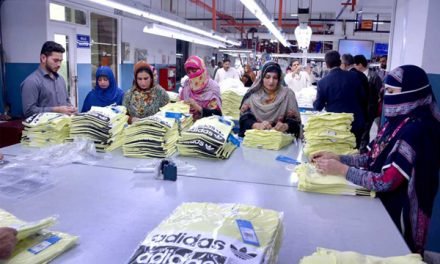 Better Cotton, the world’s largest cotton sustainability initiative, has submitted feedback to the United States Federal Trade Commission (FTC) as part of an ongoing review of its Guides for the Use of Environmental Marketing Claims (Green Guides).
Better Cotton, the world’s largest cotton sustainability initiative, has submitted feedback to the United States Federal Trade Commission (FTC) as part of an ongoing review of its Guides for the Use of Environmental Marketing Claims (Green Guides).
The FTC is a bipartisan federal agency of the US Government that champions the interests of American consumers. Its Green Guides framework was launched in 1992 to ensure that product sustainability claims made by companies are accurate and substantiated, with guidance updated intermittently to best reflect a modern context.
The guidance made available to companies covers general principles that apply to all environmental marketing claims, including information on how consumers are likely to interpret particular claims and how these can be substantiated, and how marketers can qualify their claims to avoid deceiving consumers.
As part of this latest review, Better Cotton has submitted feedback to ensure that the document considers an agricultural context and what constitutes progress at field-level, Better Cotton said.
Notably, one of the six components of the Better Cotton Standard System (BCSS) is its Claims Framework, through which it provides support to eligible members to communicate their commitment to Better Cotton in a clear, transparent, and credible way.
The ability for Better Cotton Members to communicate about their financial investment in Better Cotton to consumers strengthens their commitment to its farm-level programmes which seek social, environmental, and economic improvements for cotton farmers and farming communities.
Better Cotton is supportive of the FTC’s initiative, through its revised Guides, to establish a common framework through which US companies can ensure they communicate their sustainability efforts in a credible, verifiable, and accurate manner, the release added.
In doing so, businesses benefit from a level playing field and are empowered to continually pursue bolder sustainability targets with the opportunity to relay such ambitions to an increasingly sustainability-conscious consumer base.
That said, to improve the guidance in its current form, Better Cotton considers that the FTC should continue to include examples of substantiation from a range of methods and avoid limiting substantiation to one standard methodology.
Establishing one single method as the standard methodology for the substantiation of claims such as lifecycle analysis (LCA) or product environmental footprints (PEF) would not be appropriate as, to date, there is no standard methodology available that can cover all relevant impact categories for all product types.
Moreover, LCA raises specific challenges when applied to an agricultural context. If this approach is adopted in the revised Guides, some of the most trusted and widely used sustainability schemes and their labels would effectively be unable to provide environmental marketing claims for their members.





















